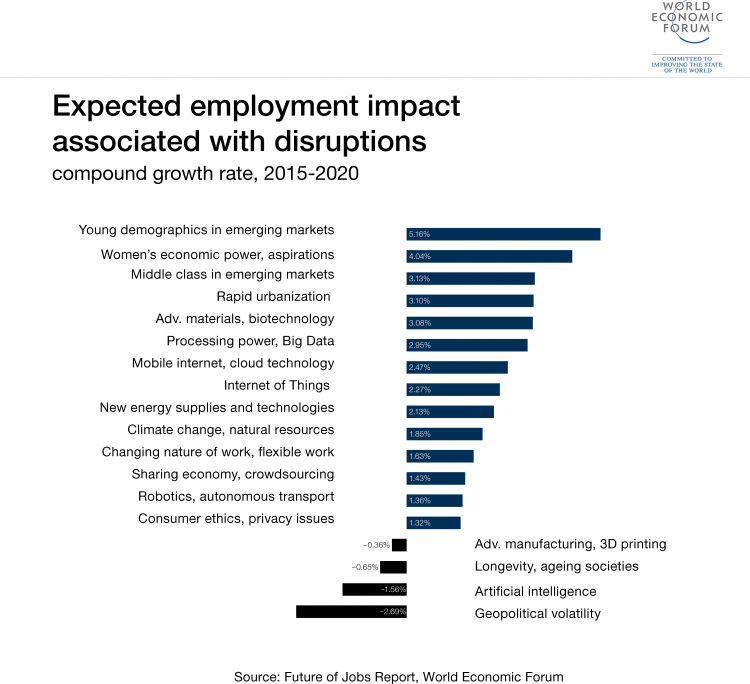How to Close the Skills Gap: Lessons from Emerging Markets

This picture taken on December 1, 2015, shows classmates of the Shanghai Young Bakers, attending a bakery training class in Shanghai. The Shanghai Young Bakers NGO offers a one year vocational training course for Chinese youth who have family difficulties resulting in them having to drop out of school because of financial problems or parental health issues.
Photo: Johannes Eisele/AFP/Getty Images
Automation and globalization are reshaping the world economy. Within the next four years, more than 5 million jobs are expected to be lost to robots.
Which skills do we need in order to face the unexpected? And how do we equip today’s school-age children for professions that don’t exist yet?
Employers are revamping their recruitment strategies. With the rise of the gig economy, portfolio career and hybrid job, what businesses want is workers who combine acumen with creativity and collaboration with good communication skills—people who can innovate and solve complex problems. Yet nearly 60 percent of businesses around the world say they are unable to find candidates who possess those skills.
Developed countries are gradually turning to educational models that cultivate skills such as creativity and grit, but they have yet to crack the skills gap. Emerging economies, on the other hand, face more daunting challenges. High dropout rates, meager funds, a lack of access and inclusion and acute teacher shortages continue to plague progress.
At the same time, the skills needed to hold a job in the 21st century are a crucial asset for any individual growing up in these countries. If current education trends continue, by 2030, the global labor force will contain at least a billion workers who lack secondary education.
Turning it around
On a brighter note, educators and social entrepreneurs from Colombia to Cambodia are on a mission to turn the cheaply staffed workbenches of the world into pools of global talent.
In fact, emerging markets are turning into fertile grounds of innovation in education. Frugally and creatively, partnerships between public and private sectors are drawing up new curriculums that match young people with the real needs of businesses. Here are three examples of creating learning initiatives that are making a difference.
- The Escuela Nueva, or “new school,” in Colombia places students’ interests and needs at the heart of learning process. It also encourages young people to learn from one another and work together on global and local challenges such as recycling or care for the elderly.
- Meanwhile, in Uganda, Educate! works with secondary schools to help young people construct their own career paths. Lessons in entrepreneurship and leadership, combined with practical training, offer students a glimpse into the real world of work.
- Martin Burt, cofounder of Teach a Man to Fish, with projects in Rwanda, Nicaragua and others emerging markets, has created the “learning by doing and earning approach,” which helps students develop designing, marketing or bookkeeping competencies and use them to run small enterprises and develop skills appropriate to the local market.
Each one is designed to answer a particular need and function in a specific national context, yet they have a lot in common. They look at what students care about and what is important to them. They have students work on local projects and challenges. Teachers are guides and mentors. Tests are about assessing and not measuring.
The global skills gap will not be narrowed without the participation of women; however the social values and staunch cultural traditions of some societies make it tough, not only to allow girls access to school, but to equip them with the skills to face the future.
The Campaign for Female Education in African emerging markets such as Ghana, Tanzania and Zimbabwe; Educate Girls in India and the Afghan Learning Institute have adopted community-driven approaches to the problems of girls’ education and early marriage. These initiatives go beyond textbook instruction to raise awareness, change mindsets and improve the quality of education and infrastructure to bring more girls into school.
The challenges that education systems face in emerging markets are endless, but the good news is that change is underway.
This piece first appeared on the Agenda blog of the World Economic Forum.



